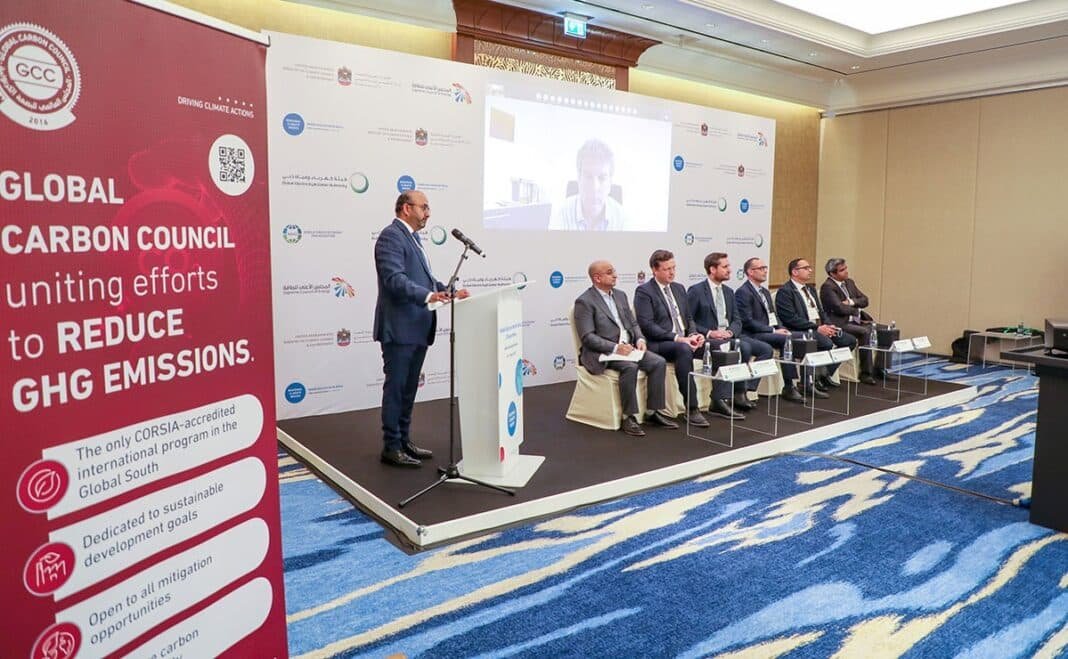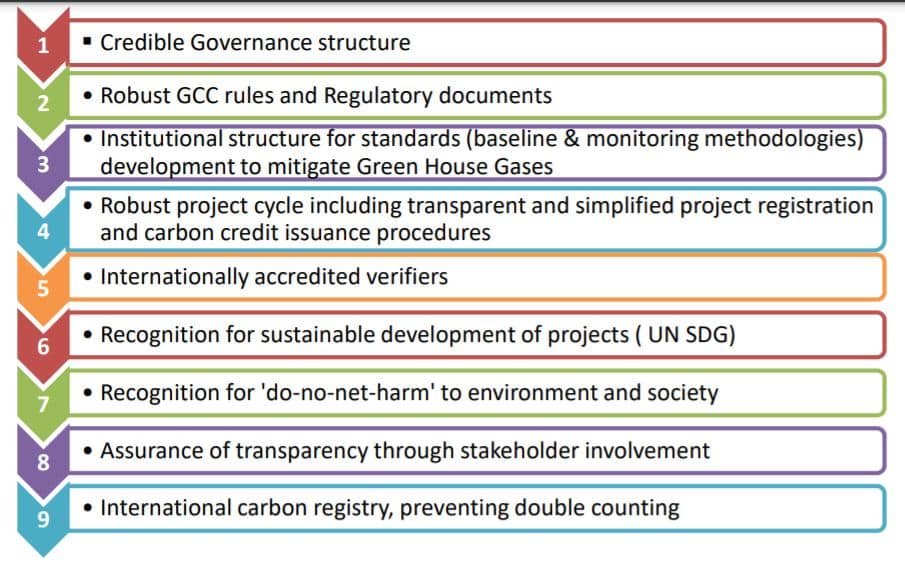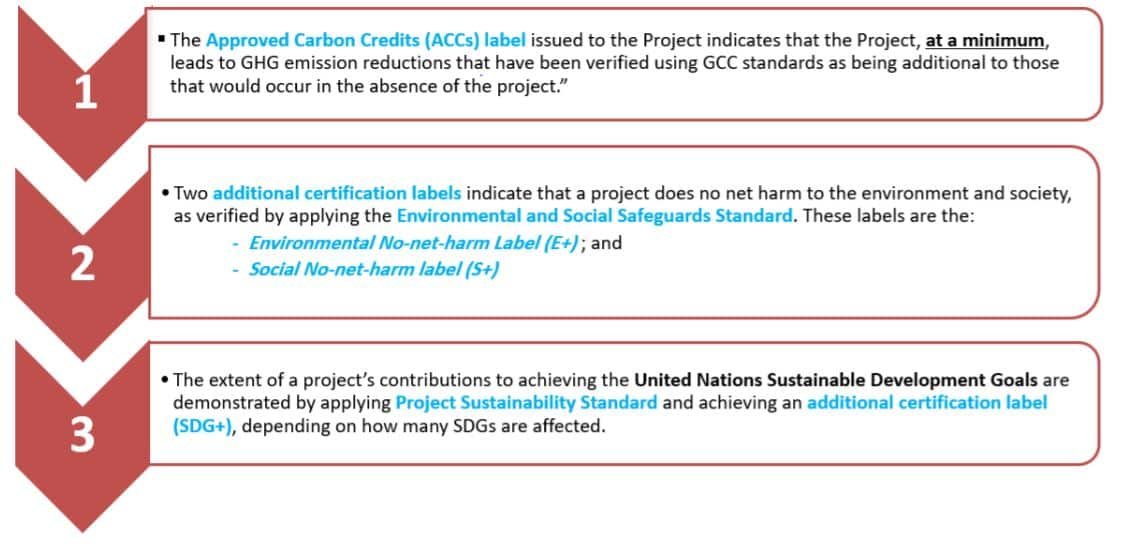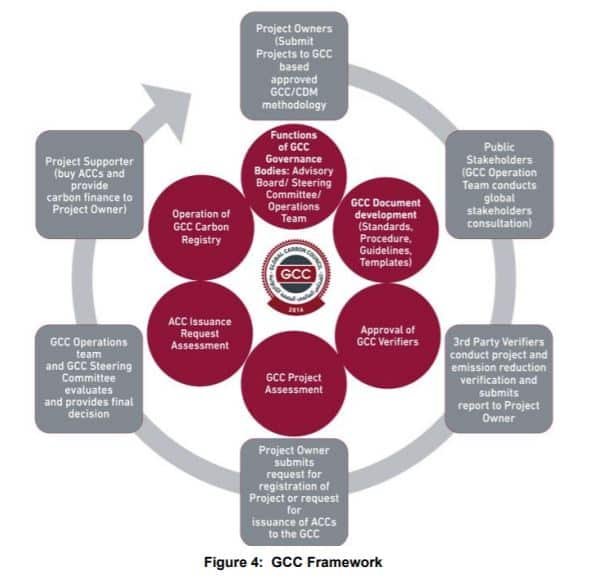Qatar’s Global Carbon Council (GCC) is expected to issue 20-50 million Mt of credits this year once submitted projects are verified.
The credits were initially used to offset the unavoidable emissions of the World Cup 2022.
The GCC is also expecting to have 2,000 projects submitted by the end of 2022. This puts the carbon program on a par with an established registry like the Gold Standard which has over 2,000 listings.
What is the GCC Program?
The GCC was established as the first global voluntary carbon offset program in the Middle East & North Africa (MENA) region. It’s an initiative of the Gulf Organization for Research and Development (GORD).
The program is to supplement the existing carbon market programs to address carbon offsetting in the MENA region. Its design has the following principles and elements of a carbon program:
The carbon credits from the projects registered with the GCC are called the Approved Carbon Credits (ACCs).
It also got approval from CORSIA (Carbon Offsetting and Reduction Scheme for International Aviation) of the International Aviation Organization (ICAO). This gives the program global recognition for the integrity of its carbon credits issuance.
GCC’s rules are from various processes, standards, and tools to ensure the following:
GCC plans to will launch regulatory frameworks for the following project types:
- Carbon Capture and Storage,
- Carbon Capture and Utilization,
- Direct Air Capture,
- battery storage projects,
- renewable energy-based desalination plants,
- water-saving projects, and
- scaling up energy-efficient buildings and neighborhoods.
Indeed, there’s big potential for carbon credits in the MENA region as solar, blue, and green hydrogen, and emission reduction initiatives are taking off. And all these qualify for carbon credits.
GCC has issued 133,000 credits since 2020 when it began receiving carbon reduction projects. The Council had received about 200 projects with 121 of them evaluated already.
Meanwhile, between 80 to 85 projects are yet to go through stakeholder approval.
- In total, the projects can account for about 40 to 50 million carbon credits. But the Council expects to have only 20 million ACCs by the end of this year as most projects are still in the ongoing registration and verification stage.
The GCC program also hopes to receive ~2,000 project submissions by the end of this year. If this will happen as expected, the program will be among some of the top carbon offset programs.
For instance, Verra’s Verified Carbon Standard (VCS) has more than 1,806 certified projects in its registry. The VCS is the most well-known and reputable program in the market today.
Likewise, about 2,400 projects are certified and verified by the Gold Standard. It comes second to Verra in terms of the volume of carbon credits it issues.
How does GCC project approval work?
In approving and registering projects, the program follows its regulatory framework illustrated in the figure below.
The inner circle represents major operations done by the GCC Program. The outer circle shows the key stakeholders and their roles in the registration process.
Before approval can be done, the project must go through a local stakeholder consultation process. After that, the Project Owner submits the project to a GCC Verifier.
Once verified, the Project Owner can submit a project registration request to the GCC program. The project will then be ready for the approval of the GCC Steering Committee.
Following the approval and registration of the project, credits are issued into the GCC registry. From there, buyers and sellers can trade carbon credits.
But it’s important to note that the GCC doesn’t have any role in pricing the credits or the transactions.
It only facilitates credit transfer between the parties. Yet, it gives opinion on whether the project meets the carbon offset program rules, it’s real, additional, and verifiable.
There are certain methods and standards that the program follows to base their opinion on a project. They’re to ensure the environmental integrity of the project.
According to GCC’s COO Rajhansa, the next step for the Council is to connect carbon exchanges to its registry. This is to make it possible for spot trading of the credits.
He also said that Air Carbon Exchange and Xpansiv have expressed intent to partner with GCC.




